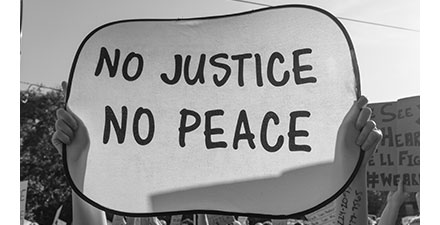Today I become an advocate of community-centered fundraising

At the beginning of my career, I learned fundraising from Hank Rosso, founder of The Fundraising School and author of Achieving Excellence in Fundraising. Hank taught that “fundraising is the gentle art of teaching the joy of giving.” I also learned fundraising basics, such as all the pre-conditions that must be in place before you ask for philanthropic support, from him.
I followed Hank’s precepts for my first 20 years as a fundraiser. Yet, I confess, I focused more on the institutions I represented than the donors. I thought I worked for my organization first, donors second.
Then, in 2001, I attended a day-long workshop with Penelope Burk, the researcher who coined the phrase “donor-centered fundraising.” I practiced donor-centered fundraising for another nearly 20 years
Now, after reading “It’s time we fundraise in a way that doesn’t uphold white moderation and white supremacy,” by Vu Le, I think it’s time for me once again to shift my approach to fundraising. Vu issues a call to arms to rethink fundraising as usual. To make it community-centric, not simply donor-centric. To remake institutions, not simply perpetuate them. And if you’re White, like me, accomplishing this goal calls for some thoughtful immersion into work we’ve never before been called upon to do. Or if we were called upon, we didn’t hear the call. Because it’s easier not to.
Until it’s not.
Vu suggests, “Our communities cannot afford for us to doubt ourselves, be too deferential, or always default to philosophies and processes that we were trained in.” Ouch. Have I, as Vu suggests, been complicit in “furthering the injustice we are trying to fight?”
My eyes have been opened. The task before me is not to shut them, but to open them even wider. Not to hope that life goes back to normal, when such norms perpetuate inequity. Whether I saw it or not. Whether I thought I shared responsibility, or not. In tort law there is the term res ipsa loquiter—the thing speaks for itself. It means a person is presumed to be negligent if they had exclusive control of whatever caused the injury, even though there is no specific evidence of an act of negligence. In the case of institutional racism, control may not be exclusive—yet I must acknowledge that I may be included within the crime of negligence.
A lot has been written lately about guilt; I’d like to talk about blame. One of our favorite human games is the blame game. Wow … do we love it. It riles up the savage beast. BLAME! Underneath, we’re all savages when it comes to survival. BLAME! Racism offers the temptation to blame the weak rather than the powerful. BLAME! Anti-racism offers the temptation to blame the privileged rather than the exploited. BLAME! The problem becomes race, and class, and war. BLAME!
I’m hoping the social benefit sector is above playing the blame game. Whenever the blame game is played, we pit ourselves against each other. As losers become winners and winners become losers, not everyone wants to play the game. When we look to blame, we adhere to what Pulitzer Prize-winning novelist Nguyen says is a basic fact of American life: “America is built on the business of driving other businesses out of business.”
Today I become an advocate of community-centered fundraising. To me, this involves putting philanthropy—translated as “love of humanity”—front and center. In philanthropy there should be no room for pitting donors against institutions and clients. No room for pitting board against staff. No room for pitting supervisors against their reports. No room for pitting Cause A against Cause B. The way I understand community-centered fundraising is to lift everyone up. Beginning with those who are the most fallen down. Until they matter, no one matters.
I sincerely hope there’s a way to fundraise and not ascribe blame or instill guilt. A way to “ask not what your donors can do for you, but what you can do for your donors”—and still adhere to what both of you, together, can best do for the community. There must be a way to instill joy in the process so we lift people up rather than beating them down. I look at these statements from successful fundraising leaders I admire, and want to pull them all together, borrowing the best ideas from yesterday and today and incorporating them into the way forward for tomorrow:
People are generous, they want to be generous and helpful, and they like to be invited to participate and to help.
—Dr. Tim Seiler, Director for 20 years, The Fundraising School
As wealth has become concentrated in even fewer hands … it is likely that philanthropy has followed the same pattern. Is it just a fact of life that the few must shoulder most of the load or could the imbalance be attributable, in part, to fundraising methodology?
—Penelope Burk, Donor-Centered Fundraising, part 1, “Defining a New Fundraising Standard”
We must fundraise in a way that does not uphold white moderation and white supremacy.
—Vu Le, Nonprofit AF
I’m not sure what this future will look like. But I know there’s a thirst among many to see, and be, a part of pushing back against a legacy of oppression and exploring better ways of doing business. And that’s what movements like community-centered fundraising (CCF) are for. Here are a few thoughts about what community-centered fundraising may involve:
- Enlist fundraisers, staff, board, and volunteers, who are Black, Indigenous, and People of Color (BIPOC), and commit to bringing diverse viewpoints to the table—from bottom to top. Consider bringing in an expert to facilitate positive dialogue around how to accomplish this goal.
- Add equity principles to vision, mission, and values statements and address them with regularity in meetings and public events—don’t just put them in a file. My friend Mazarine Treyz suggests four ways to raise these issues for discussion.
- Remember the meaning of philanthropy—love of humanity—and consider the whole of humanity when facilitating philanthropic investments. This may sometimes mean turning down a short-term tainted gift in the interest of long-term purity of purpose. Or, if you will, the greater good.
- Take a long, hard look inside your organization to see who is in leadership, who is promoted, who is overlooked and why. People tend to hire people more or less like them, so start at the top and diversify.
- Listen more. When you’re White like me, and believe you’ve been called a racist, it’s a comfortable default to defend against this accusation. I’ve done it. I thought it was perfectly appropriate. It’s not. It’s better to look for the truth in the complaint by asking questions and using your two ears more than your one mouth.
- Take uncomfortable risks to do what you know in your heart is right—don’t fear reprisal. If you see, feel, or hear something, say something. As you learn more, especially if you’re in a leadership position and can lead the way forward to a new culture of philanthropy, just do it.
Successful community-centered fundraising begins with a quest for meaning. Existentialists say, “Existence precedes essence,” which I find to be a particularly useful framework when connecting with and engaging donors. I ask myself: What essence do they seek? Now perhaps we must ask a larger question: What essence do we want to see reflected from ourselves into the community, and back again?
I don’t have the answers yet. I’m here to learn. And to pass that learning on.
Vu Le wrote something recently that struck a chord based on the culture within which I grew up. He said, “Justice demands that we support those who are most affected by injustice, whether or not we understand or feel empathy for them. It demands the recognition that our thoughts and feelings are secondary, if not irrelevant, to the realities facing many people with whom we will never completely empathize.”
I grew up in the Jewish community, where the concept of giving is given the name tzedekah. The root word, tzedek, means justice. Interestingly, it also means balance. Justice is an important concept when it comes to fundraising because it differs from the common conception of charity, from the Latin caritas, meaning caring. Within this understanding of philanthropy as tzedakah, the common question posed to students is the following:
Which is better:
- To give the homeless mother and child on the street, to whom your heart really goes out and who you care about helping, $10?
- To give the homeless mom who totally annoys you, seems wretched, triggers you for not caring appropriately for her offspring, and who you care not a whit about, $100?
The answer is #2. I’m amazed how many people say #1. Because we place such a premium on caring over justice. Or as Vu Le says, on empathy over justice. It’s not that caring and empathy aren’t important. They are. And they can definitely move people to give. But, from the perspective of the person needing help, they don’t care how you feel about helping them. A $100 gift helps more than $10. Justice matters.
We’ve reached a turning point. In community-centered fundraising, and many other things. Let’s hope we’re up for the challenge.






